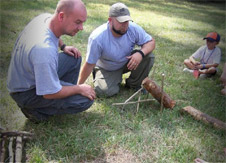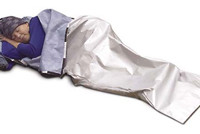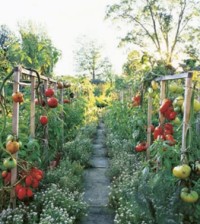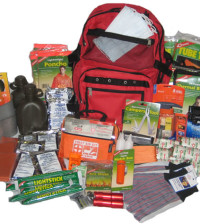- The Importance of Preparedness – A Survival Blanket Can Save Your Life
- Emergency and Disaster Preparedness – Prepper Basics for Growing Your Own Garden
- Emergency & Disaster Preparedness – Continual Survival Training Keeps You Fully Prepared
- How to Maintain Optimal Health With Prepper Vitamins
- Survival Food That Fits Nicely in Your Backpack
- 2 Essential Must Have Items That Help Preppers Become Self Sufficient
- Survival Armor Is Essential for Violent Emergency Situations
- A Guide to Storing Prepper Antibiotics – Disaster Preparedness
- Homesteading Today – Essential Must Have’s
- Survival Arms Comparison for Your Buying Consideration
Emergency & Disaster Preparedness – Continual Survival Training Keeps You Fully Prepared
- Tweet
-
- Pin It

What is one thing you can count on when an emergency or disaster strikes? I would answer self-reliance. One way to remove fear is to be prepared for any circumstance. Rather than being afraid you can replace it with the skills you want to have.
Of course you shouldn’t learn what to do when a disaster happens and then forget what you learned due to not using that knowledge in some way. You’ll need to keep that knowledge and skill fresh.
Why is this true? It’s because when an emergency or disaster hits you need to immediately spring into action. That can only happen if you remember what to do. If you haven’t studied or practiced preparedness skills you may not remember all that must be done and quickly.
By staying prepared you’ll be ready to keep yourself and your family safe. That’s what it’s all about isn’t it? Just as breathing is natural to us, you’ll need to know how to survive in any situation. That way you won’t have to think, just act when the time comes for action.
There have been studies done that show that people who aren’t prepared in survival situations will often times give in to shock. Because the necessary knowledge and skill is not fresh in your mind your mind will sort of just freeze up.
I’m sure that’s why soldiers train and train and then they train some more. That way they don’t even have to take a moment to think about they should do. They just do what they have been trained to do. They don’t freeze up.
If survival training is now second nature to you because you’ve drilled over and over again you’ll act confidently and be able to deal with anything that is thrown at you. Can you now see how urgent it is to continually be learning and training?
You need to start by thinking about what kind of training you should use to prepare yourself with. You should be planning on having a survival drill just like you should be doing with a fire drill. It goes without saying that each family member should know where to go and when.
Of course you should have already planned and prepared and have supplies on hand. These supplies should be ready to go in backpacks or better yet already be packed. That way when its time to bug out, you’ll be ready to do so. It’ll be automatic like an instinct.
We all know that we should always have at least a plan B (or maybe a plan C also). If we only prepare for one scenario such as a tornado or an earthquake, what happens when another kind of disaster happens?
If such a disaster strikes and you aren’t able to get to your supplies, you’ll need to have a backup plan ready. You need to be trained to the extent that you can make do in a primitive situation. Disasters aren’t usually neat; they’re called disasters for a reason.
For this very reason you’ll need to know how to set up a shelter – quickly. You’ll need to be able to do so using materials you were able to take with you or if not using whatever you can find on the land.
Just like you’ll have to know how to set up shelters, you’ll also want to know how to cook food and keep your family safe. This is even more critical if you have to go off the grid.
One interesting item to think about is that most families today that rely on canned goods for food is that if the electricity goes out they can’t open the cans because they don’t have a manual can opener. If you rely on electric companies, supermarkets and banks to meet your family’s needs you may be in trouble if they shut down suddenly.
We’ve all heard that practice makes perfect. With that being said you should practice your escape routes and places to meet up. You’ll need to train on how you’ll be able to communicate if the power is gone or mass communication is disrupted. You’ll want to make sure you have or know of an alternative source of food, lighting and of warmth.
Another thing you’ll not want to forget, and that’s knowing how to provide for sanitation for you and your family. You’ll need to know how to get a water supply available that’s safe. You’ll also need to know how to provide safety for your family from natural threats. These threats could come from people (or even animals) that want to jeopardize your safety
There are many ways to learn survival skills. You can learn on your own by buying books or watching videos. You could also invest in training from a survival company. Whichever alternative you decide on, disaster preparedness skills are skills that must be continually honed. That way when the time comes, you’ll know just what to do to meet the needs of your family.
About support
Related Posts
Latest News
-
4444284717bdc4022dcad3c703e19dd0
f022c1230f6444a444ac90a60121d282
- Posted 2 years ago
- 0
-
4444284717bdc4022dcad3c703e19dd0
f022c1230f6444a444ac90a60121d282
- Posted 2 years ago
- 0
-
4444284717bdc4022dcad3c703e19dd0
f022c1230f6444a444ac90a60121d282
- Posted 2 years ago
- 0
-
4444284717bdc4022dcad3c703e19dd0
f022c1230f6444a444ac90a60121d282
- Posted 2 years ago
- 0
-
The Importance of Preparedness – A Survival Blanket Can Save Your Life
You know that a survival blankets job is to increase...
- Posted 12 years ago
- 0
-
Emergency and Disaster Preparedness – Prepper Basics for Growing Your Own Garden
A good idea would be to put aside for future...
- Posted 12 years ago
- 0
-
Emergency & Disaster Preparedness – Continual Survival Training Keeps You Fully Prepared
What is one thing you can count on when an...
- Posted 12 years ago
- 0




